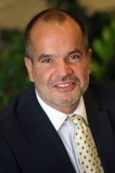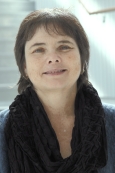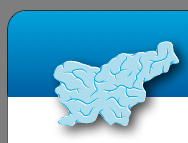

Neuroscience and Society Dialogue
Scientific Exploration of Brain on Drugs: Prizes and Pitfalls
Kosovel Hall, Saturday, 16 May, 19:00—21:00
This SNC'15 event is open to general public and no registration is required.
The event is being organized by the Faculty of Medicine of the University of Ljubljana in partnership with SiNAPSA.
Everyday we are surrounded by psychoactive drugs, often even without being attentive to how they shape our lives. When talking about drugs people usually think about addiction and negative effects, but can they imagine a life without morning coffee? Drugs are ubiquitous, yet researchers around the world don't have to be afraid about running out of scientific and ethical questions about them.
The panel will address hot topics in addiction and psychoactive substance research that will include the following issues.
Addiction research - alcohol
- What prevents the majority of social drinkers from developing alcohol abuse?
- What drives the transition from social drinking to excessive uncontrolled alcohol intake?
- What are the determinants of vulnerability and propensity to develop alcohol abuse disorders?
Psychoactive substance research
- What does research of psychoactive substances bring to the neuroscience and society table?
- Can it help us understand how mind is instantiated in the brain?
- Can psychoactive drug actions on the neural substrate help understanding of neurological and mental disorders and facilitate the search for treatment?
- Isn't scientific exploration of psychoactive substances in human subjects a slippery slope that can lead to uncontrolled spread of substance abuse?
- Why has psychedelic drug research become more popular in the last decade?
Treatment perspectives
- What is the place of Integrative Addiction Medicine in the medical management of the addict?
- To what extent are substitution therapies effective for addiction treatment and are they enough effective by themselves?
The audience is welcome to contribute additional questions and shape the discussion.
The Panelists
 Andrej Kastelic, MD, PhD, is the Head of the National Center for the Treatment of Drug Addiction in Ljubljana and has been working as an expert in addiction for more than twenty years. He is the author of more than 300 publications on drug addiction and WHO guidelines for treating drug users in custodial settings as well as several manuals and leaflets for drug users and for general public on prevention of drug use. He is the President of Global Addiction Association and serves as Secretary General of the European Opiate Addiction Treatment Association (EUROPAD).
Andrej Kastelic, MD, PhD, is the Head of the National Center for the Treatment of Drug Addiction in Ljubljana and has been working as an expert in addiction for more than twenty years. He is the author of more than 300 publications on drug addiction and WHO guidelines for treating drug users in custodial settings as well as several manuals and leaflets for drug users and for general public on prevention of drug use. He is the President of Global Addiction Association and serves as Secretary General of the European Opiate Addiction Treatment Association (EUROPAD).
 Dorit Ron, Ph.D.
Dorit Ron, Ph.D.
Professor of Neurology in Residence University of California, San Francisco
Endowed Chair in Cell Biology of Addiction in Neurology
Director of the P50 NIH-NIAAA Center Grant, “Alcohol Center for Translational Genetics”
Chair of the 2015 “Gordon Conference on Alcohol’s Actions in the CNS
Permanent member of the NIH-NIAAA Board of Scientific Counselors
Dr. Ron's laboratory is interested in elucidating molecular neuroadaptations that occur in the adult brain in response to alcohol exposure. The long-term goal is to identify novel targets that could potentially be developed as therapeutics to treat alcohol abuse disorders including excessive alcohol intake, alcohol seeking and relapse.
 Robin Carhart-Harris, Ph.D. is a psychologist with a Masters degree in Psychoanalysis, who completed a 4 year PhD at the University of Bristol focusing on the serotonin system. He then moved to Imperial College London in 2009 to work on the brain effects of drugs such as LSD, psilocybin (magic mushrooms) and MDMA, completing some of the first brain imaging studies of these drugs. Most recently Dr. Carhart Harris has been running a clinical trial looking at the potential of psilocybin to treat depression.
Robin Carhart-Harris, Ph.D. is a psychologist with a Masters degree in Psychoanalysis, who completed a 4 year PhD at the University of Bristol focusing on the serotonin system. He then moved to Imperial College London in 2009 to work on the brain effects of drugs such as LSD, psilocybin (magic mushrooms) and MDMA, completing some of the first brain imaging studies of these drugs. Most recently Dr. Carhart Harris has been running a clinical trial looking at the potential of psilocybin to treat depression.
Supporters
Operacijo delno financira Evropska unija iz Evropskega socialnega sklada ter Ministrstvo za izobraževanje, znanost in šport. Operacija se izvaja v okviru Operativnega programa razvoja človeških virov za obdobje 2007-2013, razvojne prioritete 3: Razvoj človeških virov in vseživljenjskega učenja; prednostne usmeritve 3.3: Kakovost, konkurenčnost in odzivnost visokega šolstva.
Page last updated: Thursday, July 16th 2015
Quick links
Basic information
Registration
SNC'15 Programme
Photo Gallery
Video Gallery
Schedule at a glance
Programme booklet
Book of abstracts
Educational Workshop on Addiction
Educational Course on LOPD
Klinični simpozij
Neuroscience and Society Dialogue
YNFL'15
Plenary speakers
AOŽ Memorial Lecture
Venue & Travel
Presenter's guide
Contact information
Supported by
Basic information
Get basic information about the conference.
Submit an abstract.
Find more information on registration.
Apply for a travel grant.
Learn about Educational Workshop on Addiction and Young Neuroscientists Forum Ljubljana '15.
Visit the Venue & Travel page for more information on the venue, how to get there and where to stay.
To learn who's who and get contact information, visit the Contacts page.
Key dates
26 January, 2015
Thematic symposia proposal deadline
9 February, 2015
Thematic symposia acceptance notification
1 April, 2015
Travel grant application deadline
15 April, 2015
Extended abstract submission deadline
22 April, 2015
Abstract acceptance notification
27 April, 2015
Early registration deadline
15-17 May, 2015
SNC'15
Previous meetings
SiNAPSA Neuroscience Conference '13
SiNAPSA Neuroscience Conference '11
SiNAPSA Neuroscience Conference '09
SiNAPSA Neuroscience Conference '07
SiNAPSA Neuroscience Symposium '05
SiNAPSA Symposium on Memory '04
Memos '04 Summer School








